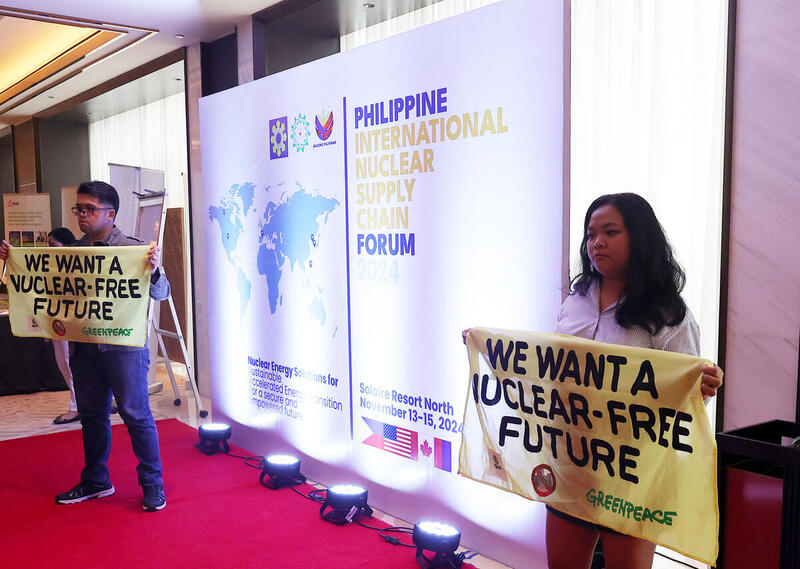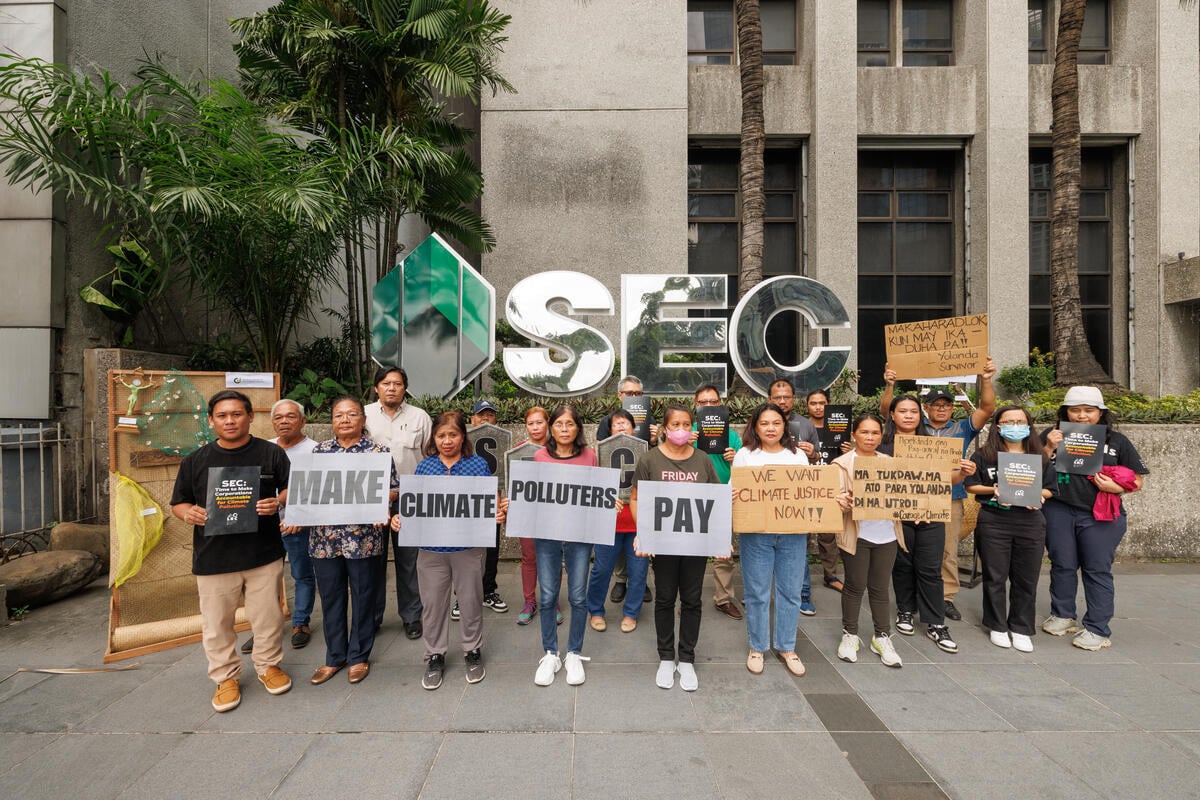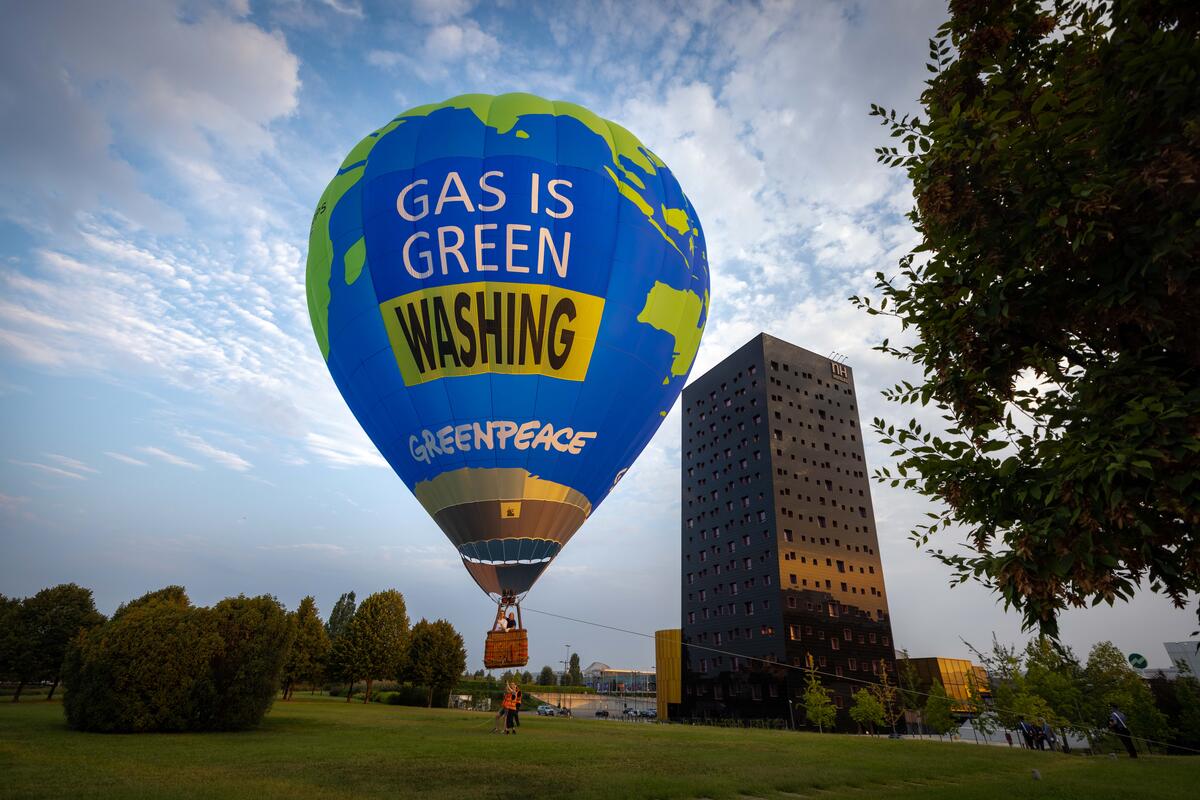“The future is in renewable energy—not in outdated and environmentally destructive fossil fuels,” said Anna Abad, Climate and Energy campaigner for Greenpeace Southeast Asia. “The Philippines can embrace an energy revolution, turn its back on coal, seize the moment, and lead the way for renewables in Southeast Asia, capitalizing on its success in geothermal and in solar panel production. This report shows clearly how renewable energy is the win-win solution for sustained economic growth in the Philippines. The Department of Energy should not miss this great opportunity. They should fully implement the RE Law, and get rid of their bias for dirty coal power projects.”
The report lays out estimates of employment creation that renewable energy has brought and could bring to the Philippines, exploring the issue sector by sector and looking at solar, wind, mini hydro, geothermal, modern biomass, and ocean energy. It also touches on how manufacturing renewable energy products locally can generate employment.
Renewables – as opposed to coal and other fossil fuel industries – typically have a relatively high labor intensity, which means they spend more on hiring people; have a higher domestic content than conventional fossil fuel sectors in the Philippines; and often produce higher-value, better paying, cleaner, healthier jobs than the fossil fuel industry does.
For example, a 10 MW solar plant employs 1000 people during the construction phase and another 100 people in permanent full time jobs. These calculations are limited to direct jobs but if indirect jobs are included the job numbers increase by 50-100%. If both indirect and induced jobs are included, it could increase job numbers by 100-350%.
Workers in the renewable energy sector have been found to enjoy better health conditions compared to traditional energy generation workers. After looking at the current and future possible employment opportunities, the report’s conclusion is clear: renewable energy can create thousands of good jobs in the Philippines.
In terms of revenues, the report provided data on how geothermal- considered a mature industry in the Philippines – has saved the government over US$ 7 billion since 1977. Other RE technologies suggests more savings to the economy–for biomass: US$ 96.9 million per year; for hydro: US$ 65.9 million per year; for solar: US$ 8.5 million per year; and for wind: US$ 29.5 million per year.The report states that the Philippines has the natural resources to propel itself as an RE leader in Southeast Asia. However the country’s vast RE potential of about 261,000 MW remains untapped, with investors now moving to other markets in the region having been locked out by coal projects in the pipeline, as approved by the Department of Energy.
The report also mentioned how RE technology could help reduce power rates in the Philippines, the highest in Asia. Greenpeace believes that one of the reasons why renewable energy may not be taking off faster in the Philippines is the prevalence of misconceptions that seek to discredit cleaner electricity sources that benefits the many, in order to keep the coal industry profitable for a select few. Green is Gold therefore debunks these misconceptions, maintaining that coal is not cheap, because it brings in additional costs in terms of pollution, reduced agriculture and fishing yields, and damage to health. Every coal plant constructed also means less space for RE investments, and therefore less government savings and less green jobs.
“We all need electricity. It is vital – it powers our lives, runs our hospitals and schools – we need it for every aspect of our lives,” said Von Hernandez, Executive Director for Greenpeace Southeast Asia. “But we need it to be clean and sustainable. The Philippine government faces a choice: to continue building coal plants that cause climate change and do not bring in as much economic benefits, or to go renewable. The facts show that it can bring us wealth, cost savings, and employment. The government’s next steps should be to cancel all coal plant construction, phase out current coal facilities and immediately pave the way for a massive uptake of renewable energy.”
The copy of the report can be downloaded here.
——————————————-
For more information please contact:
Anna Abad, Climate and Energy Campaigner, +639178573330, [email protected]
Therese Salvador, Media Campaigner, +639178228734, [email protected]



